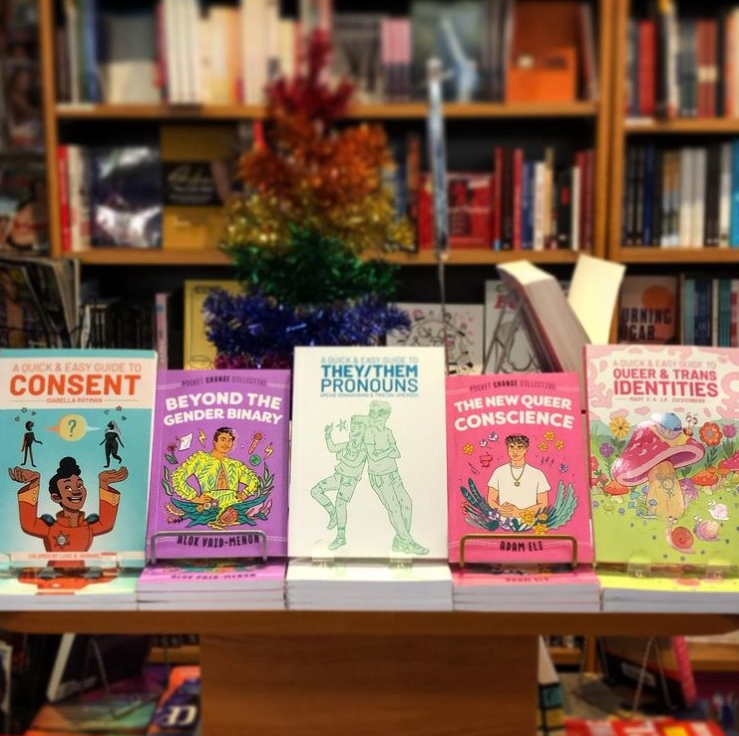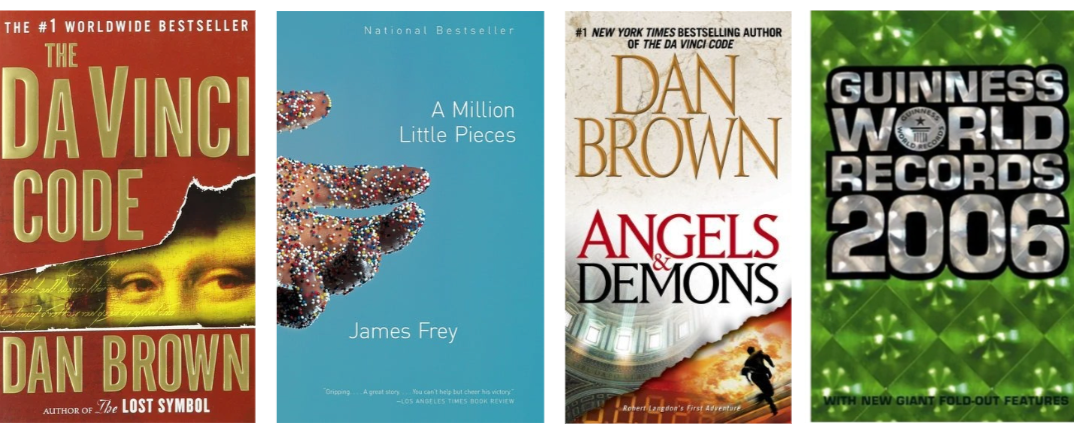For the next instalments part of our 5 questions with series, we’ll be interviewing folks who have been championing literature by and about LGBTQ2SIAP+ peoples.
To start, we had the honour of interviewing Don Wilson, Owner/General Manager at Vancouver’s Little Sister’s Book & Art Emporium (NSFW).
The story of this magnificent store goes all the way back to 1983 when Bruce Smyth and Jim Deva first opened the doors of a place that would become a landmark for the queer community in BC.
For the owners, team, and community, Little Sister’s is a symbol of resistance. Keeping the store’s doors open for more than 30 years hasn’t been easy — from legal battles to terrorist bombings, the story of this store is one of resilience.
In 2016, leadership changed, Don Wilson took over the business and Little Sister’s has continued to thrive and serve its community.
Little Sister’s is known for offering a wide range of queer reads for all ages, vital coming out info, sexy advice, and hot erotica for all. They also sell clothing, adult toys, and supplies, all in a friendly, relaxed, non-judgmental environment.
Now, without further ado, let’s get to Don’s answers to our questionnaire.
1. The pandemic’s still here, the Pride parade may be virtual, but it’s still Pride month! Looking at the last year, what’s been your biggest success story? What are you proud of?
Making books available and accessible. I wouldn’t and couldn’t boil it down to a single event, or to the efforts of just one person. But we’re very proud of not just keeping the books section (and other sections; we do a lot more than just books) business-as-usual, but also making more and more of our books available online, doing our first virtual book readings, and supporting and promoting local authors and projects.
Little Sister’s also has such a strong history with books. The people who came before us and built this place fought for our right to have our books — the books really are their legacy. We’re always very proud of that, and we realize the importance of our role in the LGBTQ2SIAP+ community as custodians of that history.
2. Readers and book buyers face numerous challenges when trying to find LGBTQ2SIAP+ content. Can you share strategies you have put in place to promote specific titles/genres that have brought great results?
I think that’s really interesting, and it’s not quite the narrative that we’ve found: we in fact rely greatly on our local community to help us discover new books. Generally speaking, there are lots of mechanisms to spotlight books: social media, book features, events and signings, signs/write-ups, staff recommendations, discounts, even just turning a book cover-forward instead of spine-forward. We do those things, but I think what we spend more time thinking about is which books to highlight.
Having staff that reflects the diversity of queer experiences can really help us find those titles and stories that resonate with people who don’t see their stories represented elsewhere. On the other hand, there are many queer readers who come by our store who have built their own communities and discourse where their stories are shared and developed. Asking them what books we need to pay attention to, or supporting their projects, is another important component.
If bookstores want to be invested in their communities, they have to be in constant consultation and communication with those groups and communities, not just context-less, individual customers.
3. Little Sister's describes itself as "offer[ing] a great selection of queer reads for all ages, vital coming out info, sexy advice & hot erotica for all...but we ALSO feature an award-winning greeting card section, the latest quality adult toys & supplies (*including transgender supplies, like binders & packers!) and fun clothing...all in a friendly, relaxed, non-judgmental environment." How has that mission developed over time and what would you suggest other industry peers keep top of mind as they consider mission-driven bookselling?
Well, the store was created as a community-based bookshop. Our full name is “Little Sister’s Book & Art Emporium.” I think the description you cite could reflect a variety of narratives. We don’t focus on just books anymore, but we have different staff focusing on different projects and aspects of the store. While being a safer space is still an explicit goal for us, we’re not the same community hub we used to be for a lot of local queers. There are so many factors that have influenced these changes. I think it’s easy to attribute it all to how difficult it is for independent bookstores today, and that’s why we’ve had to branch out into different products.
As our community has evolved, we’ve done a really good job of adapting to our community’s needs. The queer urban landscape today is so different, with far more visibility, services, and spaces afforded to us. I think it’s a wonderful thing that we aren’t the only community resource for information or safety — that others have made spaces online and in-person for these things — and it’s this what’s allowed us to explore other important areas and be as comprehensive as we’re today, helping queer folks navigate sexuality, gender, play, fashion, identity, etc. We can have these conversations now.
For other bookstores with a guiding mission or vision, the only advice I have is to be willing to interrogate what/whom that mission serves, under what conditions would that mission be achieved and what then, and when you feel you’re diverging from that mission, why that might be.
4. What advice do you have for someone from the LGBTQ2SIAP+ community looking to start their career in the book industry?
There are so many roles to fill in the book industry, and while people are looking for queer books more than ever, it doesn’t mean it’ll be an easy journey for everyone. I can’t give any universal advice for everyone in the industry, because the challenges will be different for a queer author versus a queer bookseller like us. I think this applies more to the publishing side of things, but pay attention to marginalized voices. Know that researched, active, targeted efforts to leverage specific intersections of identities can be immensely powerful. Positions of power and visibility aren’t available or survivable for people who are disenfranchised from queer communities, even though their stories are the ones we need the most right now. You’ll miss them if you don’t do the work to find them.
5. What are some trends in LGBTQ2SIAP+ writing and publishing you’re excited about?
Oh, so many! Iconic imagery and visual art has always been an integral part of queer culture, so it’s so amazing to see all the various media of graphica that queer creators are exploring. There are also so many bodies of literature that are growing exponentially, for topics that went previously totally untouched by mainstream LGBTQ2SIAP+ discourse, or in activist or academic circles. Books on asexuality, aromanticism, polyamory, race, community organizing, being non-binary, disability, intersex, two-spirit, and queer elders come to mind. Books for social workers and other service providers, for parents, for allies. Tiny little books you can ‘forget’ on your teacher’s desk to teach them about they/their/them pronouns or queer terminology. It’s very exciting!
BONUS: Other than yourself, who is a change maker the publishing and bookselling industry should know about?
As far as writers go, I’m a relentless fan of Meg-John Barker, whose writings on gender, self-care, non-monogamy, plural selves, counselling, community organizing, and queer theory have helped so many. For publishers, Arsenal Pulp Press has been doing amazing work locally, and has published some of our favourite recent reads. And among other Vancouver booksellers, the other standout for me has always been Spartacus Books, a non-profit anarchist bookstore carrying plenty of queer books and zines.
Thanks to Don for taking the time to answer our questionnaire. Here’s to many more years of serving the LGBTQ2SIAP+ community.
Find all of our bookseller responses to this questionnaire here.

















The latest news out of the European Commission.